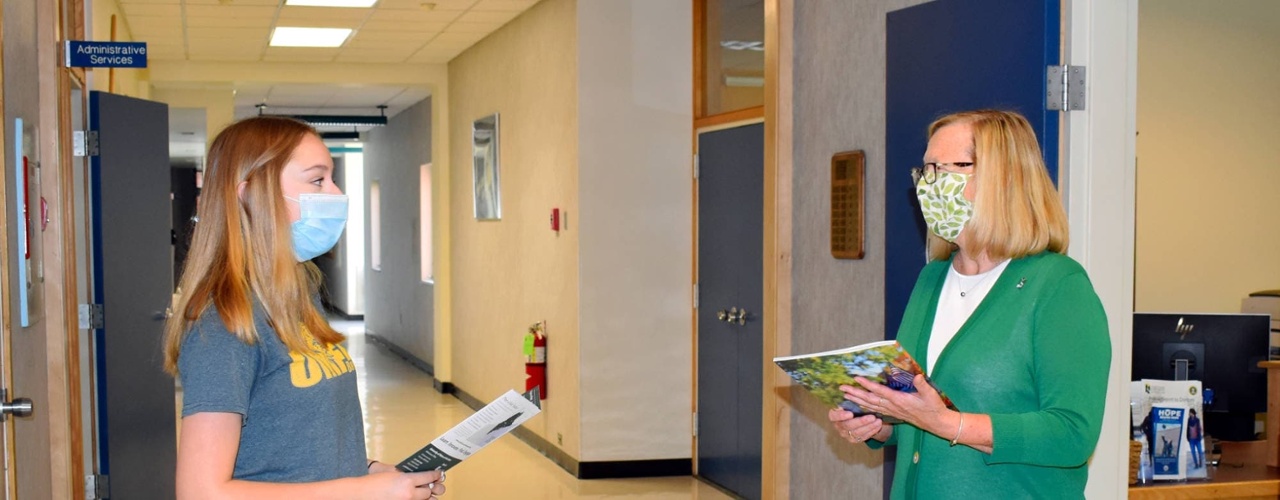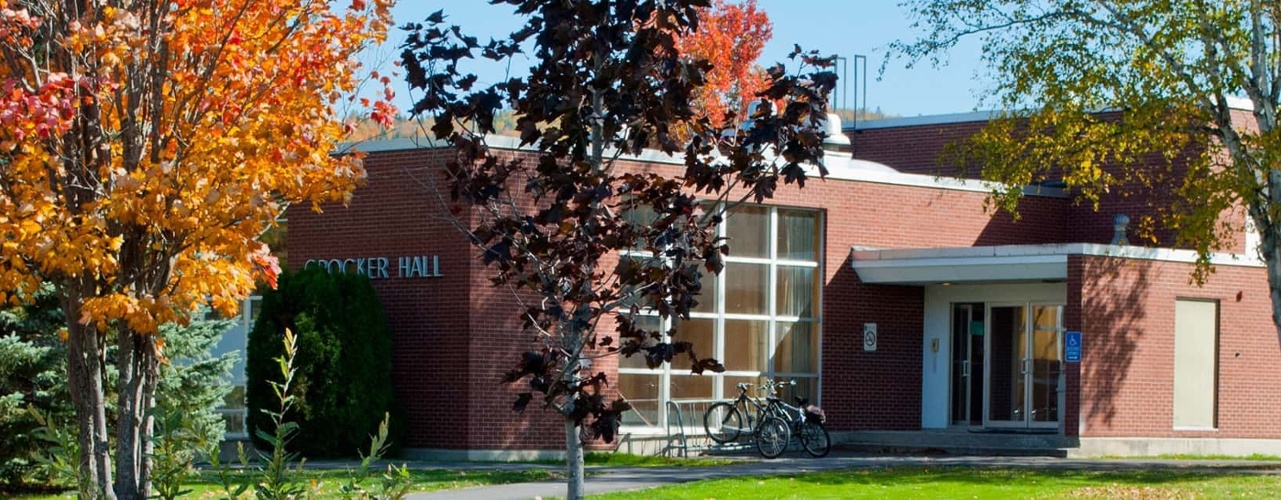
Latest News
Working Together to Re-establish the Public Health Infrastructure: The Aroostook District Coordinating Council
June 17, 2016
Note: this is an archived news release. As such, the information provided may no longer apply.
NR16039
“Regardless of our individual work roles and responsibilities, we can all work together in our rural communities to commit to health promotion and wellness as a priority in all that we do to make Aroostook County the healthiest district in the state,” stated Dr. Rachel E. Albert, UMFK Nursing Professor.
Dr. Albert, who chairs the Aroostook District Coordinating Council (DCC) for Public Health, works with Stacy Boucher, Maine Center for Disease Control (CDC) District Liaison, a steering committee, and DCC colleagues to lead, promote, and build upon a culture of public health in Aroostook County. Aroostook DCC members include representatives from the Maine Center for Disease Control (CDC) and the Department of Health and Human Services (DHHS), county governments, municipal governments, hospitals, emergency management agencies, Emergency Medical Services tribes, comprehensive community health coalitions/Healthy Maine Partnerships (HMPs), school districts, local health officers, institutions of higher learning, clinics and community health centers, voluntary organizations, Area Agency on Aging, mental health services, substance abuse services, community-based organizations, issue-specific coalitions, and others.
On March 17, Kenneth Albert, former Director and Chief Operating Officer of the Maine CDC, made a presentation to the local DCCs regarding their evolving roles. A key component of the change as described by the DHHS Commissioner, Mary Mayhew, is to strengthen and clarify the Maine Public Health System and its structure. This adaptation is in response to the ever-changing public health landscape and emerging public health needs in Maine. As a result, the DHHS is investing $1.45 million annually to support the nine DCCs that make up the public health infrastructure, as well as fund public health improvement strategies prioritized by membership of the DCC based upon feedback received from the community.
The DCCs were established in 2007 by a Public Health Work Group with state-wide representation across all sectors, as mandated by Maine State law, for a more coordinated system of public health. The DCCs are responsible for providing leadership in their respective communities for public health planning, programming, and improved results. The nine districts include Aroostook, Central, Cumberland, Downeast, Midcoast, Penquis, Western, York, and Wabanaki Health.
The new expectation of each DCC is to strengthen and formalize the Council’s governance and oversight structure, which includes: 1) development and consistent review of by-laws; 2) development of operation guidance; and 3) creating a District Public Health Improvement Plan, which establishes district priorities.
Aroostook, District 8 covers the county’s 73,008 residents in 68 municipalities and two federally recognized tribal nations: the Aroostook Band of Micmacs and the Houlton Band of Maliseets. Two Healthy Maine Partnerships (HMPs) for the district include Power of Prevention with CARY Medical Center as fiscal agent, and Healthy Aroostook, with Aroostook County Action Program, Inc. as lead/fiscal agent.
The broad mission of the Aroostook DCC is to serve as “The district-wide representative body for collaborative public health infrastructure development in Aroostook County.” The mission is implemented in several ways, by: 1) ensuring the effective and efficient delivery of the 10 Essential Public Health Services in Aroostook County; 2) creating and sustaining partnerships and shared public health resources; 3) promoting county-wide collaboration in public health assessment, planning, implementation, and evaluation; and 4) continually enhancing the quality of public health services provided.
According to Stacy Boucher, Maine CDC liaison, “In alignment with the release of District Development funds, DHHS developed the Prevention Services for Maine’s Public Health Districts Request for Proposals (RFP) and sought applications from experts to address Maine’s top public health priorities and to improve results for opioid abuse and tobacco use. The successful vendor will be working closely with DCCs to assure that the needs of the District are appropriately addressed and to ensure that Prevention Service Proposal goals are met.”
“We are pleased with these new changes and directions. As part of our communication plan to strengthen our function in working as a district, the Aroostook DCC in collaboration with University of Maine at Fort Kent is planning a series of monthly news releases to further build participation and public awareness of its role. Future news releases will highlight the public health success of Healthy Maine Partnerships; Shared Health Needs Assessment Planning Process (SHNAPP) public health priorities for Aroostook County; the role of Aroostook DCC’s new Public Health Education Committee; strategies to address cardiovascular health, obesity, and substance abuse as part of the Aroostook District Health Improvement Plan; and creating change by building strong academic-community partnerships for health. Promoting public health is as important as treating illness. It is imperative that health care providers work as an interprofessional team to improve care and work on the many public health challenges,” said Dr. Albert.





